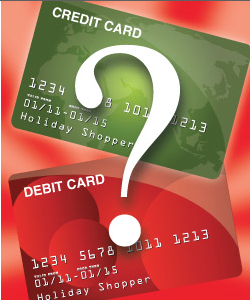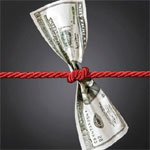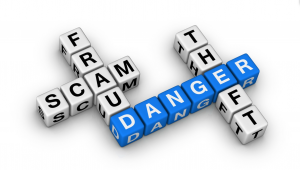
It’s one of the questions that enters into discussion whenever issues of personal finance come up. And the answer is not as easy as it would appear on the surface. Purchases with both cards are subject to processing that makes a difference. Before you decide how to handle your card-shopping, consider these factors.
Debit Card
When you use a debit card, the transaction usually requires a personal identification number or PIN. The transaction is completed in real time, with the money coming immediately out of your bank account and transferring to the merchant.
Credit Card
A credit card does not require a PIN and is an offline transaction. The funds remain in your account until the merchant settles the purchase. It generally takes two to three days for the transaction to be apparent in your account.
Fees
Before the Dodd-Frank Wall Street Reform and Consumer Protection Act was passed by Congress, card issuers could charge different fees for credit card purchases than for debit card transactions. Initially, interchange fees of 12 cents per transaction were set. They rose to a 21-cent cap before the bill was signed into law, but that was still significantly lower than the previous 45-cent fee that had been in effect.
Credit Unions
The law, however, does not apply to thousands of community banks and credit unions that issue cards. It is in effect for financial institutions with $10 billion or more in assets.
The caps tended to dry up the debit card rewards and free banking provisions that had been offered with cards.
Difference
With the regulatory changes it makes less difference if you use a debit card or charge card for your purchases. The major difference now is that a debit card does not help you build credit, while a credit card does. Many debit cards now will run transactions without the use of a PIN, which minimizes the prospects for fraud.
Personal Decision
If you pay off credit card purchases in a timely manner, avoiding the interest charges, the distinction between debit and credit is further neutralized. Most Americans are likely to have one or more of both types of cards in their wallets. How they use them as they shop is a personal decision.






